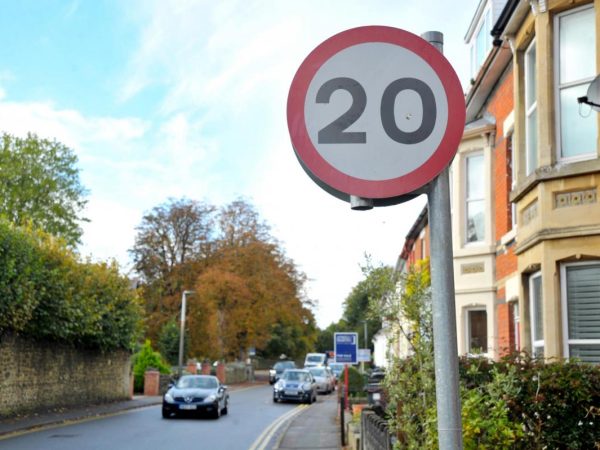In the realm of economics, there exists a parallel universe, often concealed from the mainstream, yet undeniably influential – the Parallel Economy Meaning . This clandestine economic system operates alongside the traditional channels of commerce, often evading regulatory oversight and taxation. In this article, we embark on a journey to uncover the meaning behind the parallel economy, shedding light on its intricacies, implications, and impact on society.
Defining the Parallel Economy Meaning
To understand the Parallel Economy Meaning , we must first define its essence. At its core, the parallel economy refers to the informal sector of economic activity that operates outside the purview of government regulations and official oversight. This clandestine network encompasses various activities, including unreported income, under-the-table transactions, and illicit trade.
Exploring the Shadow Parallel Economy Meaning
The shadow economy, synonymous with the Parallel Economy Meaning , thrives in the shadows of the formal economy. It encompasses a wide array of activities, ranging from small-scale bartering to large-scale black market operations. Despite its clandestine nature, the shadow economy exerts a significant influence on global economic dynamics.
Key Characteristics of the Parallel Economy Meaning
Several key characteristics distinguish the Parallel Economy Meaning from its formal counterpart. These include:
- Lack of Regulation: Unlike the formal economy, the parallel economy operates without adherence to government regulations and oversight.
- Informality: Transactions within the parallel economy often occur informally, without proper documentation or records.
- Tax Evasion: Participants in the parallel economy frequently engage in tax evasion, avoiding taxation on their income and transactions.
- Underground Markets: The parallel economy encompasses underground markets for goods and services that are often prohibited or heavily regulated in the formal economy.
- Cash Transactions: Cash transactions are prevalent within the parallel economy, facilitating anonymity and evasion of financial scrutiny.
Drivers of the Parallel Economy Meaning
Several factors contribute to the proliferation of the parallel economy:
- Economic Hardship: Economic instability and poverty drive individuals to seek alternative means of income generation within the parallel economy.
- High Taxation: Excessive taxation in the formal economy incentivizes individuals and businesses to engage in tax evasion within the parallel economy.
- Regulatory Burden: Stringent regulations and bureaucratic hurdles push businesses and entrepreneurs towards informal channels within the parallel economy.
- Cultural Norms: In some societies, informal economic practices are deeply ingrained in cultural norms, perpetuating the existence of the parallel economy.
- Lack of Enforcement: Weak enforcement of regulations and inadequate legal frameworks create opportunities for the parallel economy to flourish.
Implications of the Parallel Economy Meaning
The parallel economy has far-reaching implications for both individuals and society as a whole:
- Economic Distortion: The parallel economy distorts economic indicators and undermines the efficiency of resource allocation within the formal economy.
- Loss of Tax Revenue: Tax evasion within the parallel economy results in significant revenue losses for governments, limiting their ability to fund essential public services and infrastructure.
- Social Inequality: The prevalence of the parallel economy exacerbates social inequality by perpetuating disparities in income and access to opportunities.
- Criminal Activity: The shadow economy provides a breeding ground for criminal activity, including money laundering, drug trafficking, and human exploitation.
- Undermining Governance: The parallel economy undermines governance structures and erodes trust in public institutions, leading to systemic issues of corruption and inefficiency.
Global Perspectives on the Parallel Economy Meaning
The parallel economy manifests differently across various regions and economies:
- Developing Countries: In developing countries, the parallel economy often constitutes a significant portion of the overall economic activity, providing livelihoods for millions of individuals who lack access to formal employment opportunities.
- Emerging Markets: In emerging markets, rapid urbanisation and informalization of labour contribute to the expansion of the parallel economy, challenging governments’ efforts to regulate and formulate economic activities.
- Developed Economies: Even in developed economies with robust regulatory frameworks, the parallel economy persists in niche sectors such as cash-intensive businesses, construction, and hospitality.
Addressing the Parallel Economy Meaning
Effectively addressing the parallel economy requires a multifaceted approach:
- Strengthening Enforcement: Governments must bolster enforcement mechanisms and enhance collaboration between law enforcement agencies to combat illicit economic activities.
- Regulatory Reforms: Streamlining regulations and reducing bureaucratic hurdles can incentivize businesses to operate within the formal economy.
- Promoting Financial Inclusion: Providing access to formal financial services and credit facilities can mitigate the reliance on cash transactions and informal channels.
- Public Awareness: Raising awareness about the negative consequences of participating in the parallel economy can deter individuals from engaging in illicit activities.
- Social Safety Nets: Implementing social safety nets and welfare programs can alleviate economic hardships and reduce the vulnerability of marginalised populations to the allure of the parallel economy.
Case Studies: Spotlight on Parallel Economy Meaning
Examining real-world examples of parallel economies sheds light on their dynamics and impact:
- Informal Sector in India: The informal sector in India constitutes a significant portion of the country’s economy, providing livelihoods for millions of individuals engaged in activities ranging from street vending to small-scale manufacturing.
- Black Market in Venezuela: In Venezuela, economic turmoil and hyperinflation have fueled the growth of a thriving black market for essential goods and foreign currencies, undermining government efforts to stabilise the economy.
- Cash Economy in Greece: In Greece, widespread tax evasion and cash transactions have contributed to the emergence of a parallel economy, hampering the government’s ability to collect revenue and combat corruption.
The Ethical Dilemma of Participating in the Parallel Economy
Participating in the parallel economy raises ethical considerations for individuals and businesses alike. While some may justify their involvement as a means of survival or circumventing oppressive regulations, others argue that engaging in illicit activities undermines the integrity of the economic system and perpetuates social injustice. The decision to operate within the shadows of the parallel economy is fraught with moral ambiguity, requiring careful reflection on the broader societal implications of one’s actions.
The Future of the Parallel Economy in a Digital Age
As technology continues to advance and global connectivity increases, the landscape of the parallel economy is poised for transformation. The proliferation of digital currencies, online marketplaces, and decentralised platforms presents both opportunities and challenges for regulating informal economic activities. Governments and policymakers must adapt their strategies to address the evolving dynamics of the parallel economy in a digital age, leveraging technological innovations to enhance transparency, accountability, and inclusivity within the formal economic framework.
Conclusion
The Parallel Economy Meaning remains a pervasive and complex phenomenon, deeply intertwined with the fabric of global economic systems. While its clandestine nature poses challenges for regulators and policymakers, addressing the root causes of informal economic activity is essential to fostering inclusive and sustainable development. By shining a light on the shadowy corners of the parallel economy, we can work towards creating a more transparent, equitable, and resilient economic landscape for all.
FAQs
1. What distinguishes the parallel economy from the formal economy?
The parallel economy operates outside the purview of government regulations and oversight, often involving informal transactions and tax evasion.
2. How does the parallel economy impact government revenue?
Tax evasion within the parallel economy results in significant revenue losses for governments, limiting their ability to fund essential public services and infrastructure.
3. What role does the parallel economy play in perpetuating social inequality?
The prevalence of the parallel economy exacerbates social inequality by perpetuating disparities in income and access to opportunities, particularly for marginalised populations.
4. What are some strategies for addressing the parallel economy?
Strategies for addressing the parallel economy include strengthening enforcement mechanisms, streamlining regulations, promoting financial inclusion, raising public awareness, and implementing social safety nets.
5. Are there any successful examples of combating the parallel economy?
While combating the parallel economy remains a persistent challenge, there are examples of successful interventions, such as enhancing enforcement efforts, promoting formalization of economic activities, and implementing targeted social welfare programs.
Also read: Barcode Example Showcase: 10 Mind-Blowing Instances That Redefine Efficiency














